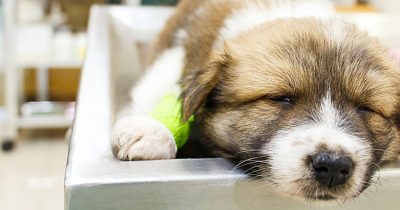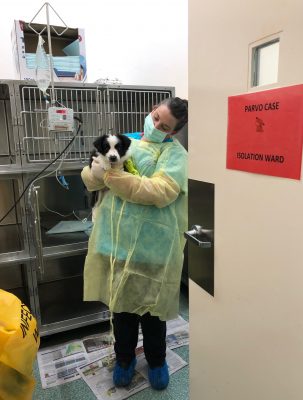Recently there have been multiple cases of canine Parvovirus reported by veterinarians in Canberra and it’s surrounds. Parvovirus is a highly contagious and potentially fatal virus that causes extreme vomiting and diarrhoea leading to dehydration, lethargy, septicemia and even death in severe cases.

This virus can be spread directly through contact with an infected dog or through faeces or indirectly through items like water bowls, collars and leashes or the hands or clothing of people that have touched an infected dog. Parvovirus can also remain active in infected soil for years, i.e. at ovals or dog parks where an infected dog has been.
Dogs less than 1 year of age are most at risk however older un-vaccinated dogs can also contract the disease.
Most dogs will recover with aggressive supportive treatment if started early. The main focus of treatment is intravenous fluids to replace lost fluids and re-balance electrolytes, pain relief to ensure the patient remains comfortable and medication to control vomiting and nausea. Patients may require treatment in hospital for many days before recovering.

The good news is that Parvo is a preventable virus and is covered in your dog’s normal C3/C5 vaccination. We recommend that puppies have 3 vaccinations at 6-8 weeks, 10-12 weeks and 16 weeks of age. They also require a booster vaccination at around 15 months of age and then a booster every 3 years for life.
We’d like to take this opportunity to remind new puppy owners that your dog is not covered until 10 days after their second C3 vaccination and you should avoid taking your dog to public places like foot paths, dog parks and ovals until they have received all 3 vaccinations. If you are unsure of your puppy or adult dog’s vaccination status please give us a call on 6230 2223. If you notice decreased appetite, vomiting, diarrhoea or lethargy in your pet please call your vet ASAP.


